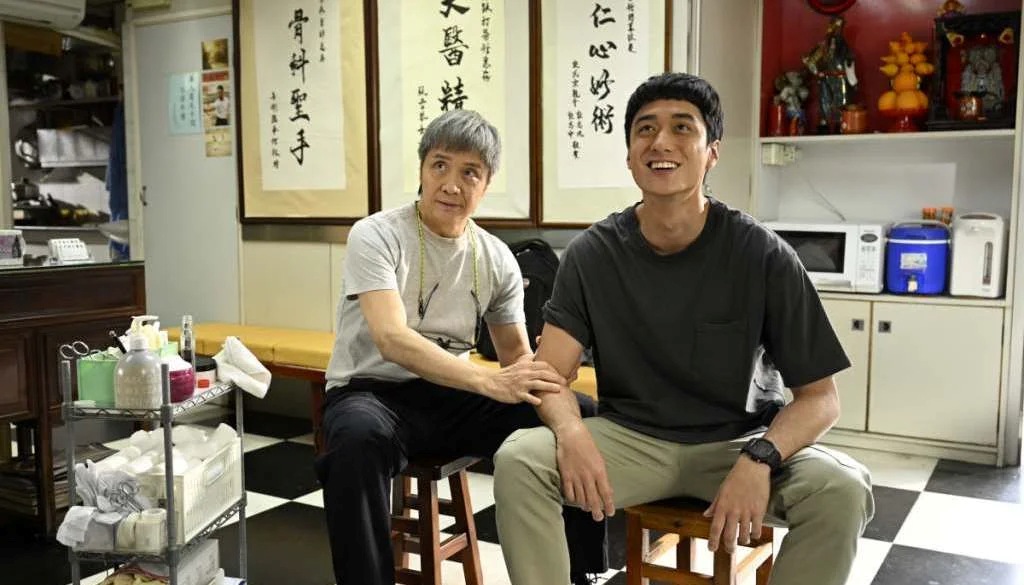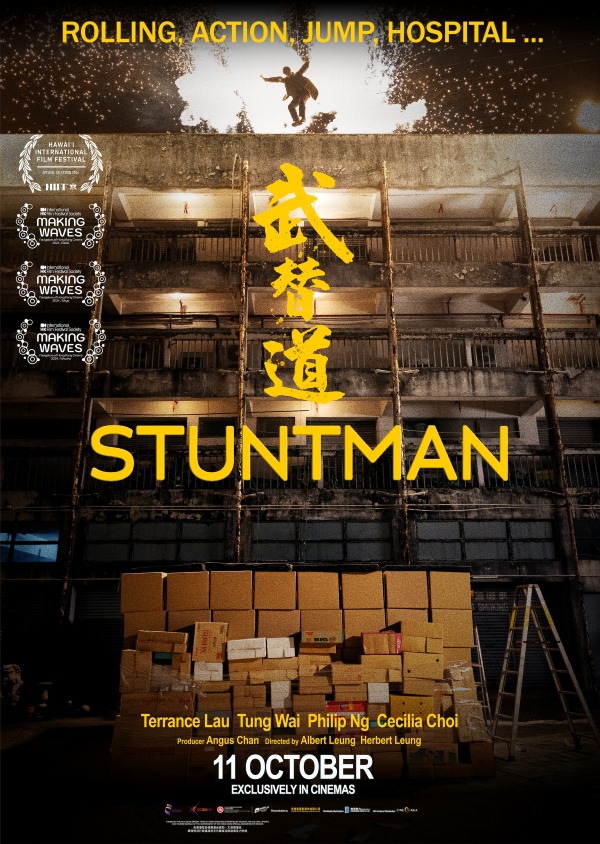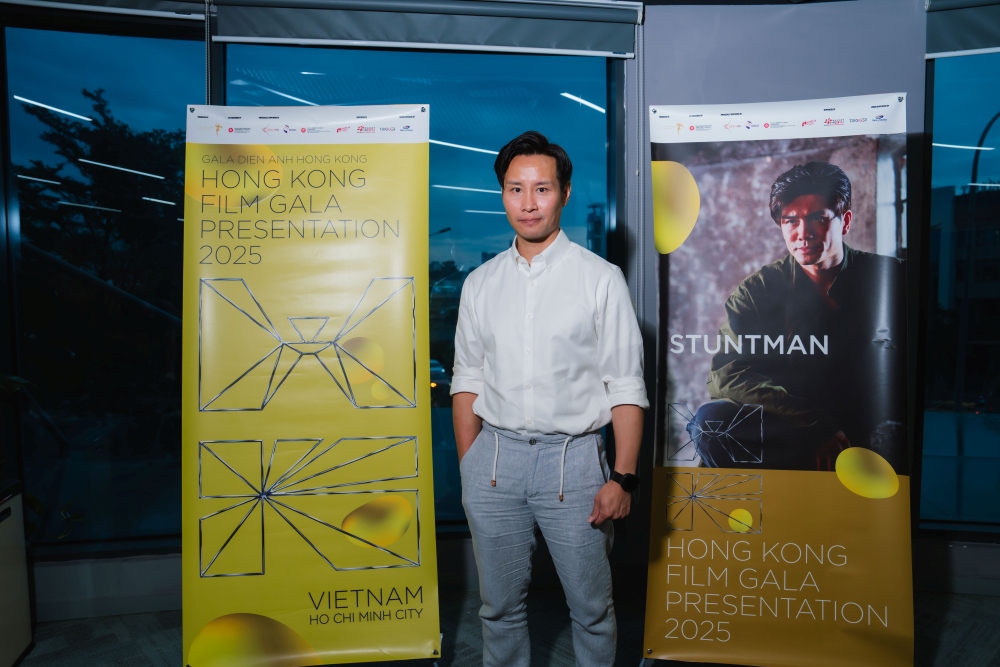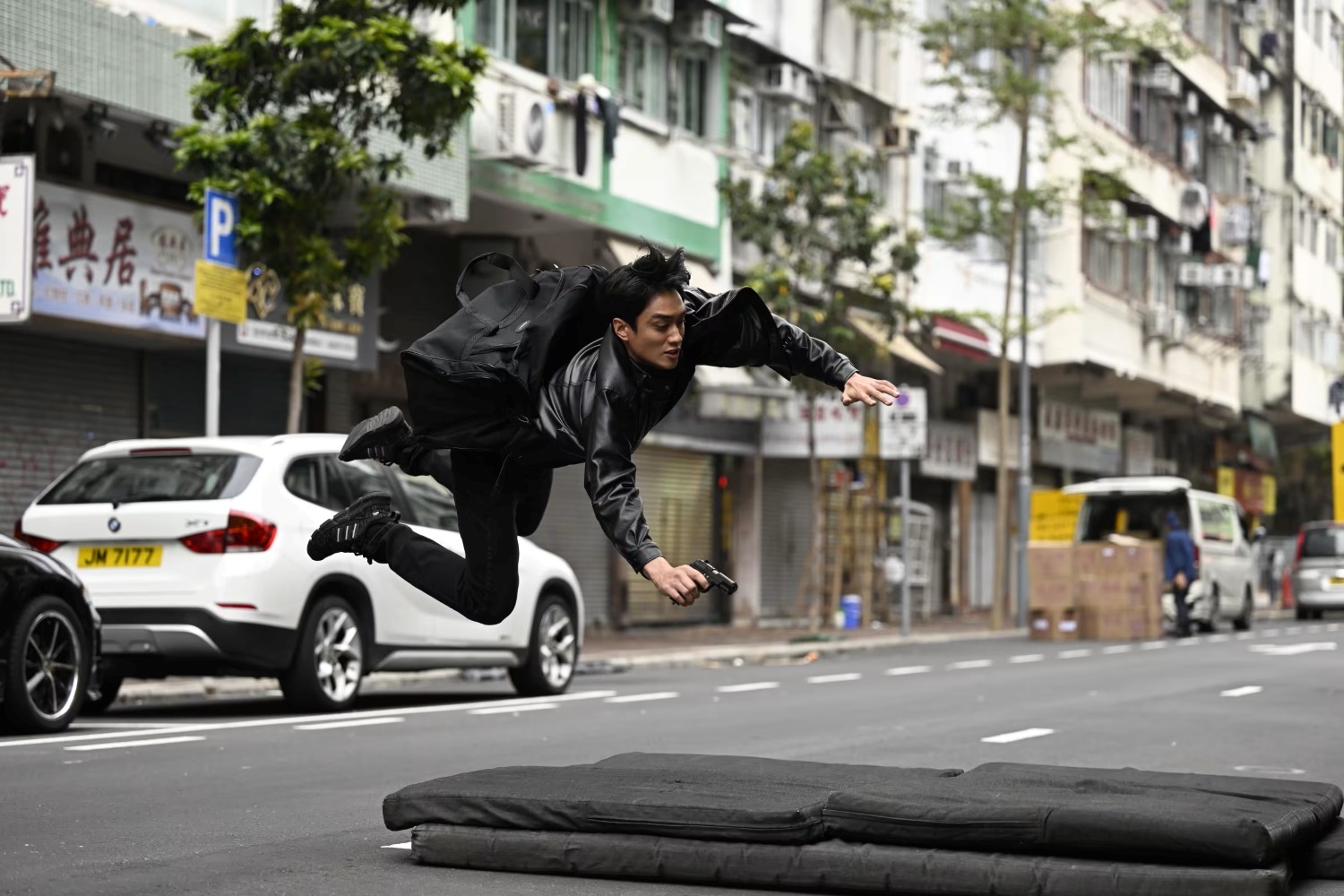by Liam Resnekov
Honestly, I’m bored. And I’ve been bored for a while. The John Wick crew have turned action cinema into a well-oiled, balletic machine. Yes, it is beautiful. But the bigger and slicker the action gets, the less I feel it.
Nowadays, regardless of genre, everyone is an invincible martial arts superhero, so every film misses the one thing that audiences, and I, need to really care – stakes.
That is exactly what Stuntman, a love letter to Hong Kong cinema, explores: the stakes, both on the screen and off it.
If you grew up on Hong Kong action cinema like I did, you already know that it delivered some of the most fearless and inventive stunts ever filmed. Few scenes caused more childhood hospital visits than the glass-shattering finale of Police Story.
Forty years later, Stuntman takes us back there: a Hong Kong mall, a fresh batch of stunt recruits, and a reminder that gravity has not softened with age. They tumble down the escalators, over the railings, and straight through the glass.
As I watched, I found myself fighting back a tear for the little boy who fell in love with the movies.
The film follows Sam Lee, played by real-life action veteran Stephen Tung Wai, a once revered action director who now lives in the shadow of an on-set accident. When an old friend offers him one last job, Sam accepts, even though it means neglecting his daughter’s wedding preparations.
This is the theme spelt out: sacrifice everything for the film. However, once back on set he quickly clashes with Leung Chi Wai, played by rising star Philip Ng, whose team has no interest in the high-risk methods that Sam is steeped in.

At the centre is the Master–Student bond between Terrance Lau’s giddily eager Long and Tung Wai’s veteran Sam. Their dynamic often recalls Whiplash, with the master demanding utter commitment and a student whose trust starts to look like it might put him in a wheelchair.
 The classic references keep coming. The film nods to the burning-building leap from Heart of the Dragon and Conan Lee’s infamous bridge mishap in Tiger on the Beat II. These are deep-cut love letters that only real fans will recognise and brother directors of the film, Albert and Herbert Leung, both stuntmen themselves, know their Hong Kong cinema.
The classic references keep coming. The film nods to the burning-building leap from Heart of the Dragon and Conan Lee’s infamous bridge mishap in Tiger on the Beat II. These are deep-cut love letters that only real fans will recognise and brother directors of the film, Albert and Herbert Leung, both stuntmen themselves, know their Hong Kong cinema.
Unlike the recent wave of Hollywood action films, they are not serving up stunt-porn. Instead, they use these legacy moments as the framework for something quieter and more personal, a way to share the hidden world of stunties and finally give them a face. And it’s worlds away from The Fall Guy, which is more like a glossy pamphlet than a tribute.
The directors make a smart choice by casting several veterans from the golden age of Hong Kong cinema. Stuntman is a character drama, but the fights have muscle memory of old Hong Kong filmmaking. The authenticity comes from the involvement of veterans Stephen Tung Wai and action director Benz Kong To-Hoi, who both worked in the era that the film honours.
Not everything lands. Stuntman brings a touch of dated melodrama, and the father-daughter subplot is occasionally heavy-handed. A few emotional moments play broader than necessary. The finale, although sincere, leaves the audience wanting both less and more.
For a film about stakes, it feels like it could have pushed further.
In the end, Stuntman is not trying to reinvent Hong Kong cinema. It is trying to preserve its spirit, and in that it succeeds. This is a confident debut that deserves a wider audience across both Western and Asian markets. The film remembers a time when action filmmaking was built on spirit, sacrifice, brotherhood and giving everything for a single shot. It invites the audience to remember as well.
A grounded, affectionate tribute to Hong Kong’s action heritage, strengthened by authentic stunt craft and a welcome optimism that the old spirit is still alive.
Here, director Herbert Leung talks about balancing the old and the new, the legacy of Hong Kong’s stunt heroes, and why Stuntman is both a love letter and a challenge to the next generation.

What were the films that influenced Stuntman?
“Police Story, Eastern Condor, Heart of the Dragon and Terminator 2, which I wasn’t old enough to see in cinemas, unfortunately. But also, my action director Benz Kong To-Hoi and lead star Stephen Tung Wai actually lived through those days, so they gave me a lot of inspiration through their stories.”
 Where is the balance between the old and the new ways in action cinema?
Where is the balance between the old and the new ways in action cinema?
“It’s a hard place to draw a line. The old way of doing things was the red-trousers system, the Peking Opera training, the master-and-student relationships, whereas nowadays in the stunt world, it’s more like an athlete-and-coach dynamic. Back then, the master’s word was final. He could shout, lose his temper like Sam does in the movie, and demand whatever he felt would get the best performance. With a coach, you’re not going to take that. So modern action has a very different energy.”
You directed with your twin brother. How was that? And will you do it again?
“Yes, because my brother is the first person to shoot down my ideas. When we were on set, the producer would often ask one of us to make a decision without the other, but even if we argued behind closed doors, outside, everything was unified. So, no matter who they asked, we were able to take control and give one clear answer.”
What was it like having the older generation — Benz Kong and Stephen Tung — on set?
“It wasn’t just inspiring; they brought so much experience to the shoot. Stephen brought 45 years in the industry. He helped the younger actors and gave us confidence as first-time directors that we could get the film finished. We shot the whole movie in 19 days and 12 of those were action. They also introduced a lot of safety measures and precautions, which made everyone feel more comfortable.”
What is the message of the film?
“A lot of what you see on screen is based on real stories, though, of course, dramatised. For example, the gun sequence was shot without permits, you can’t do that nowadays. We wanted to show how the old school and the new school approach things differently, but at the end of the day it’s about passion, the risks you take to make it work. That’s the spirit and the message I’d like to pass on to the next generation.”



